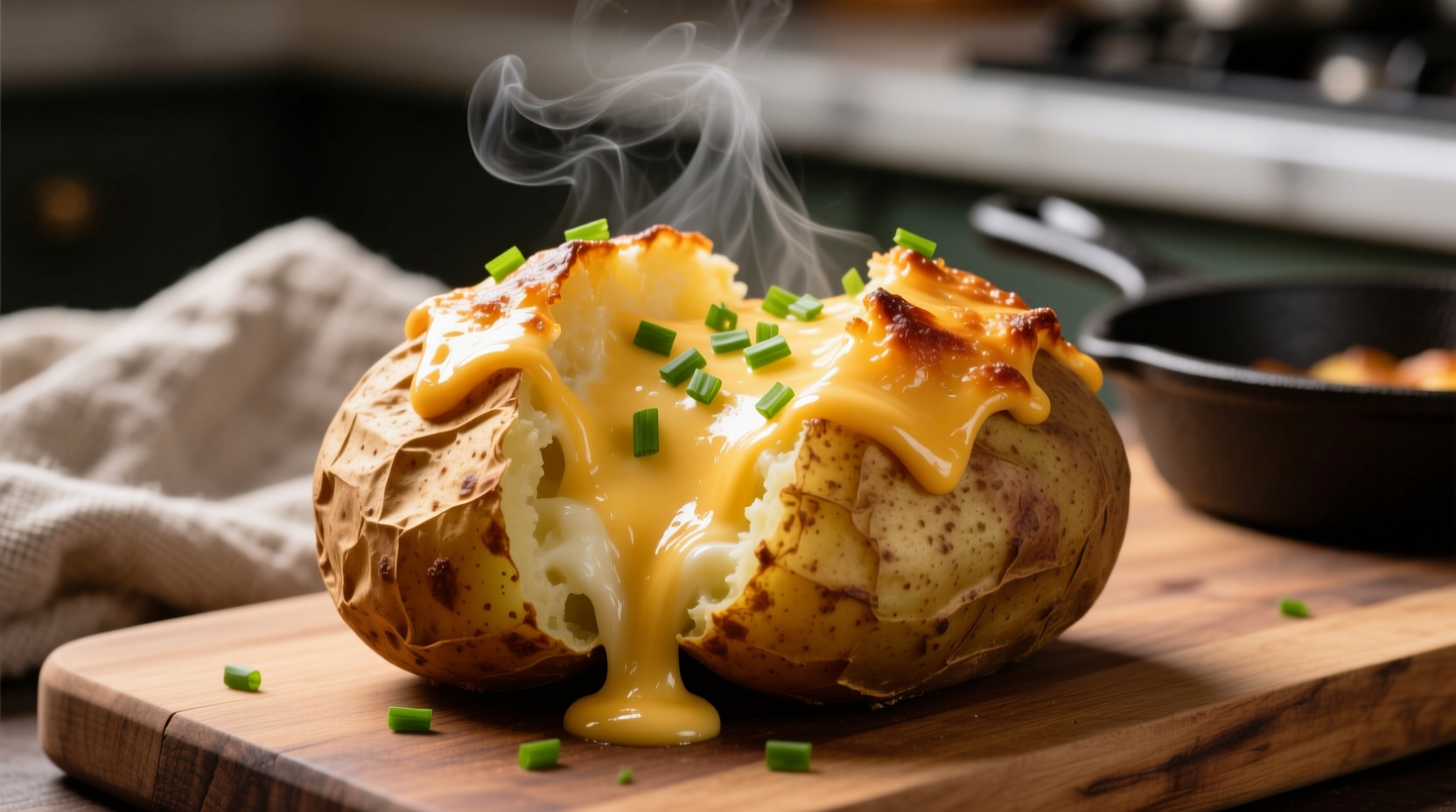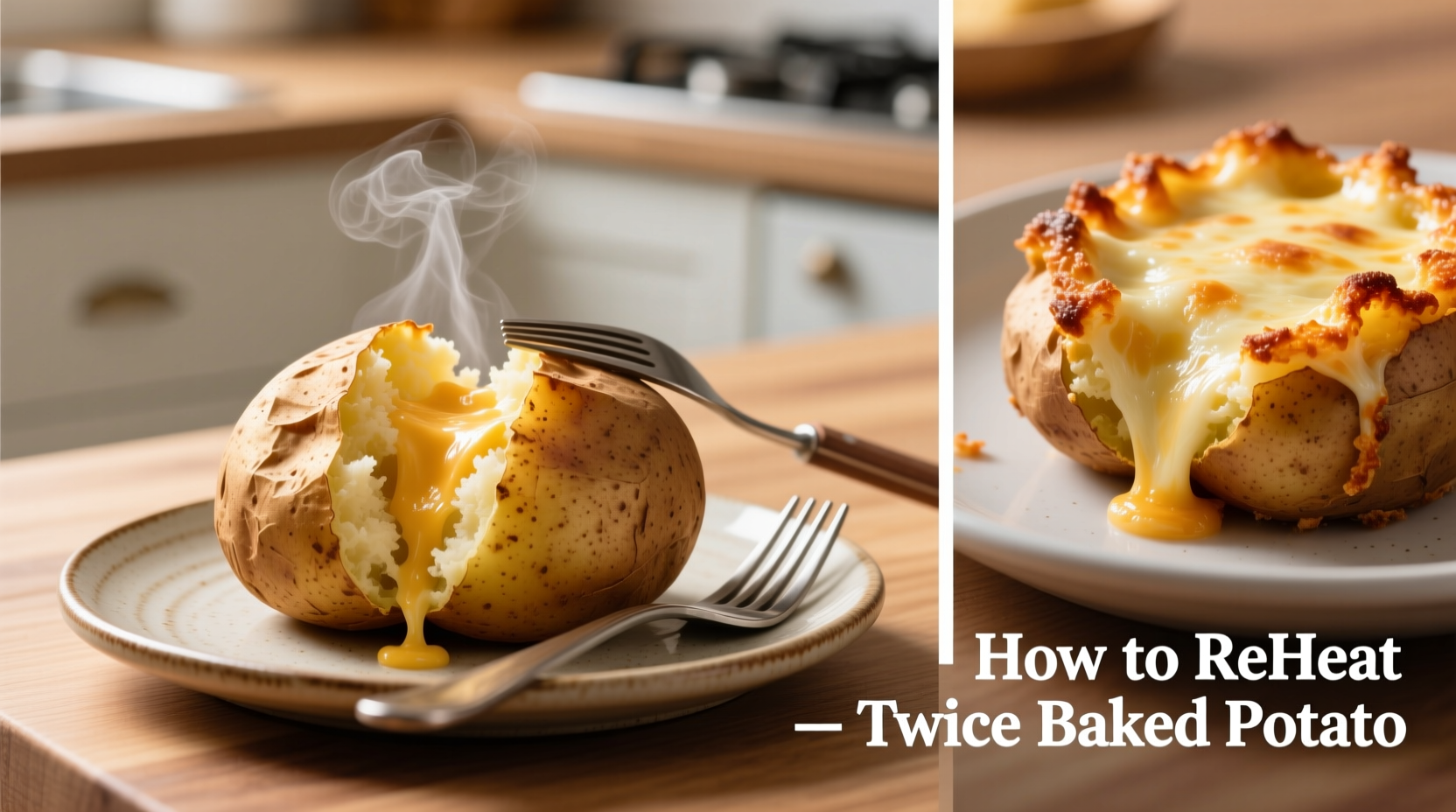Leftover twice baked potatoes shouldn't mean compromised quality. As a professional chef who's worked in both Michelin-starred kitchens and casual eateries, I've perfected reheating techniques that restore that just-made texture and flavor. Whether you're meal prepping or enjoying leftovers from last night's dinner, these methods will transform your reheated potatoes from soggy disappointment to restaurant-quality perfection.
Why Proper Reheating Matters for Twice Baked Potatoes
Twice baked potatoes present unique reheating challenges. Unlike regular baked potatoes, they contain dairy, cheese, and often proteins that react differently to heat. Improper reheating causes:
- Dairy separation and curdling
- Soggy or burnt skins
- Dry, crumbly filling
- Uneven temperature distribution
Understanding the science behind starch behavior and dairy proteins helps us develop effective reheating strategies. When potatoes cool, their starch molecules retrograde (re-crystallize), causing that unpleasant dry, crumbly texture. Proper reheating reverses this process while preventing moisture loss.

Best Methods for Reheating Twice Baked Potatoes
Oven Method: Best for Texture and Flavor
The oven delivers the most consistent results by gently warming the entire potato while preserving texture. This method works for single portions or multiple potatoes.
- Preheat oven to 350°F (175°C)
- Remove potatoes from refrigerator 15 minutes before reheating
- Add 1-2 teaspoons of milk, cream, or broth to the filling
- Wrap each potato loosely in aluminum foil
- Place on baking sheet and heat for 20-25 minutes
- Remove foil for final 5 minutes to crisp the top
- Check internal temperature reaches 165°F (74°C)
Air Fryer Method: Quick Crispy Results
When you need faster results with excellent texture, the air fryer delivers. This method works best for individual portions.
- Preheat air fryer to 325°F (163°C)
- Add moisture to filling as with oven method
- Place potato in air fryer basket (no overlapping)
- Cook for 12-15 minutes
- Check temperature and crispiness
- Return for 2-3 minutes if needed
Microwave Method: Emergency Speed Option
While not ideal, the microwave works in a pinch. This method requires careful attention to prevent rubbery texture.
- Add extra moisture to filling (more than other methods)
- Cover potato with damp paper towel
- Microwave on 50% power for 2-minute intervals
- Rotate potato between intervals
- Check temperature after each interval
- Stop when internal temperature reaches 165°F
| Reheating Method | Time Required | Texture Result | Best For |
|---|---|---|---|
| Oven | 20-25 minutes | Perfectly balanced - crispy skin, creamy filling | Special occasions, multiple portions |
| Air Fryer | 12-15 minutes | Slightly crispier skin, excellent filling texture | Quick weeknight meals, single portions |
| Microwave | 6-10 minutes | Softer skin, potentially uneven filling | Emergency situations only |
Food Safety Guidelines You Must Follow
Reheating potatoes improperly creates food safety risks. The USDA Food Safety and Inspection Service specifies that cooked potatoes must be reheated to an internal temperature of 165°F (74°C) to eliminate potential bacteria growth. Never reheat potatoes at temperatures between 40°F and 140°F for extended periods, as this is the danger zone where bacteria multiply rapidly.
According to the USDA Food Safety and Inspection Service, cooked potatoes should not remain in the temperature danger zone for more than 2 hours (1 hour if ambient temperature exceeds 90°F).
Common Mistakes to Avoid When Reheating Twice Baked Potatoes
- Skipping the moisture boost - Dairy-based fillings need extra liquid to prevent dryness
- Using high heat - Causes exterior burning before interior is properly heated
- Not checking internal temperature - Visual cues don't guarantee food safety
- Reheating multiple times - Quality degrades significantly with each reheating cycle
- Leaving potatoes uncovered throughout - Causes excessive moisture loss
Troubleshooting Reheated Potato Problems
Dry filling? Next time, add more dairy before reheating. For current batch, gently fold in warm cream.
Soggy skin? Return to oven uncovered for 5-7 minutes at 400°F to restore crispiness.
Curdled cheese? This happens when dairy overheats. Next time, use lower temperature and add cheese after reheating.
Cold spots? Cut potatoes into smaller portions before reheating for more even warming.
Storage Tips for Maximum Reheating Success
How you store your twice baked potatoes affects reheating results. Follow these professional storage guidelines:
- Cool potatoes completely before storing (within 2 hours of cooking)
- Store in airtight containers with filling side up
- Place parchment paper between potatoes if storing multiple
- Refrigerate within 2 hours of cooking
- Consume within 3-4 days for best quality
- Freeze for longer storage (up to 3 months)
When to Toss Leftover Twice Baked Potatoes
Follow these safety guidelines to determine if your potatoes are still safe to reheat:
- Discard if left at room temperature for more than 2 hours
- Throw out if refrigerated longer than 4 days
- Discard if you notice any off smells or mold
- Don't risk it if temperature was ever in the danger zone (40-140°F) for extended periods











 浙公网安备
33010002000092号
浙公网安备
33010002000092号 浙B2-20120091-4
浙B2-20120091-4